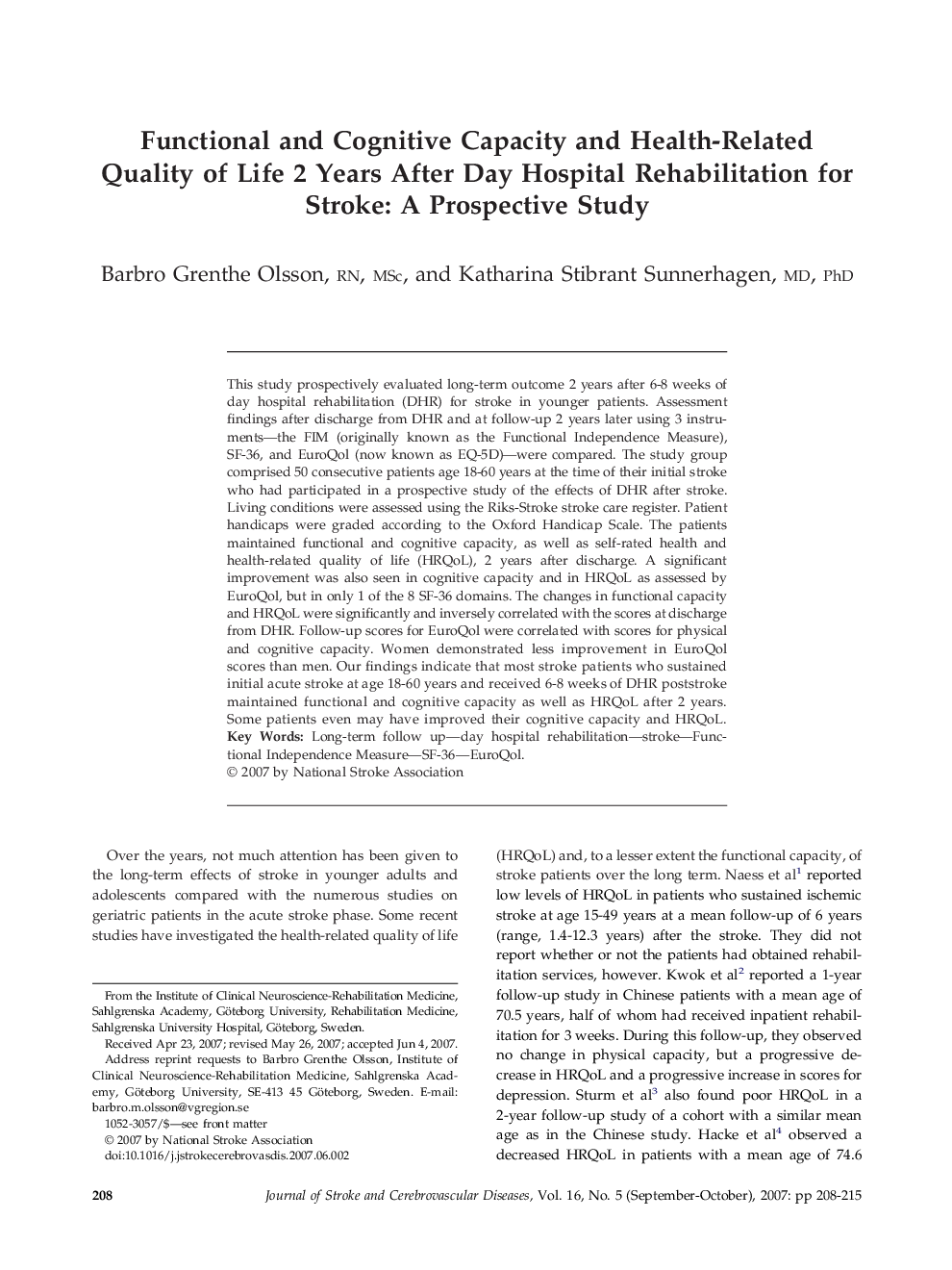| Article ID | Journal | Published Year | Pages | File Type |
|---|---|---|---|---|
| 2708130 | Journal of Stroke and Cerebrovascular Diseases | 2007 | 8 Pages |
This study prospectively evaluated long-term outcome 2 years after 6-8 weeks of day hospital rehabilitation (DHR) for stroke in younger patients. Assessment findings after discharge from DHR and at follow-up 2 years later using 3 instruments—the FIM (originally known as the Functional Independence Measure), SF-36, and EuroQol (now known as EQ-5D)—were compared. The study group comprised 50 consecutive patients age 18-60 years at the time of their initial stroke who had participated in a prospective study of the effects of DHR after stroke. Living conditions were assessed using the Riks-Stroke stroke care register. Patient handicaps were graded according to the Oxford Handicap Scale. The patients maintained functional and cognitive capacity, as well as self-rated health and health-related quality of life (HRQoL), 2 years after discharge. A significant improvement was also seen in cognitive capacity and in HRQoL as assessed by EuroQol, but in only 1 of the 8 SF-36 domains. The changes in functional capacity and HRQoL were significantly and inversely correlated with the scores at discharge from DHR. Follow-up scores for EuroQol were correlated with scores for physical and cognitive capacity. Women demonstrated less improvement in EuroQol scores than men. Our findings indicate that most stroke patients who sustained initial acute stroke at age 18-60 years and received 6-8 weeks of DHR poststroke maintained functional and cognitive capacity as well as HRQoL after 2 years. Some patients even may have improved their cognitive capacity and HRQoL.
